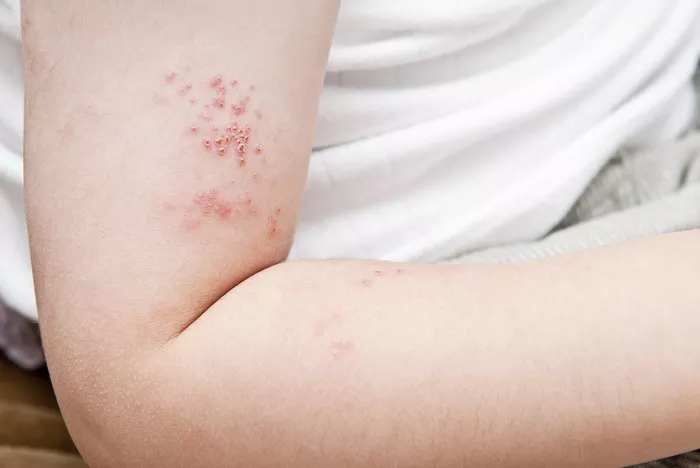Ringworm is a common fungal infection that affects the skin, scalp, and nails. It is known for causing red, itchy patches that form circular or ring-like shapes, which is how it gets its name. Most people associate ringworm with poor hygiene, but it is important to know that it can be caused by a variety of factors, including fungal exposure and underlying health conditions. One question that arises is whether ringworm can be a sign of HIV.
HIV, or Human Immunodeficiency Virus, weakens the immune system by attacking and destroying CD4 cells, which are important for fighting off infections. Because the immune system is compromised in individuals living with HIV, they may be more susceptible to infections that healthy people might easily fight off. This includes fungal infections like ringworm.
In this article, we will explore whether ringworm can be a sign of HIV, what the connection is between the two, and what people living with HIV need to know to manage their health effectively.
What is Ringworm?
Ringworm is a fungal infection caused by dermatophytes, a type of fungus that thrives on the skin, hair, and nails. It can be contracted through direct contact with an infected person, animal, or contaminated object, such as towels or clothing. Despite its name, ringworm has nothing to do with worms. It is simply a skin infection that forms red, itchy, circular patches with raised borders and a healthy-looking center.
There are several types of ringworm infections, depending on the area of the body that is affected:
Tinea corporis: Ringworm of the body, typically seen as round patches on the arms, legs, or trunk.
Tinea cruris: Ringworm of the groin area, also known as jock itch.
Tinea capitis: Ringworm of the scalp, often affecting children.
Tinea pedis: Athlete’s foot, a common form of ringworm on the feet.
Tinea unguium: Ringworm that affects the nails.
Ringworm is typically treatable with over-the-counter antifungal creams, powders, or medications. However, in some cases, it may be more persistent, requiring stronger treatments.
HIV and the Immune System
HIV is a virus that targets the immune system, specifically the CD4 cells (also called T-cells). These cells play a crucial role in fighting infections and protecting the body from diseases. Over time, if untreated, HIV can reduce the number of CD4 cells in the body, weakening the immune system and leaving the person vulnerable to a range of infections and illnesses, known as opportunistic infections.
An individual with HIV is more prone to infections because their immune system cannot respond as effectively to pathogens that would usually be harmless in a person with a healthy immune system. These infections can be viral, bacterial, or fungal in nature.
One of the most important aspects of HIV care is antiretroviral therapy (ART), which helps to suppress the virus and maintain a healthy immune system. However, without proper treatment, people living with HIV may experience a higher frequency of infections, including fungal infections like ringworm.
Can Ringworm Be a Sign of HIV?
In general, ringworm is not a definitive sign of HIV. However, individuals with HIV, especially those whose immune systems are weakened, may be more susceptible to developing fungal infections like ringworm. This is because their immune system may not be able to respond quickly or effectively to fungal pathogens.
Ringworm is usually a mild infection in individuals with healthy immune systems and is treatable with antifungal medications. However, in people with HIV, ringworm infections can sometimes be more severe or persistent. This is particularly true in individuals who have a low CD4 count, which indicates a weakened immune system.
While ringworm alone is not a direct indicator of HIV, frequent or recurrent ringworm infections in individuals who are at risk for HIV could suggest an underlying immune deficiency. In some cases, a person with HIV may experience other skin conditions, such as candidiasis (yeast infections), herpes, or Kaposi’s sarcoma, which are more common in people with weakened immune systems. If someone experiences frequent or unusual fungal infections, it is important to get tested for HIV and other underlying health conditions.
Why Are People with HIV More Prone to Ringworm?
The link between HIV and an increased risk of ringworm lies in the immune system’s ability to fight infections. People living with HIV often have lower CD4 counts, meaning their bodies are less able to combat infections, including those caused by fungi like dermatophytes, which are responsible for ringworm. This makes it easier for the fungus to take hold and spread.
When the immune system is compromised, common infections like ringworm can become more difficult to treat, and they may recur more frequently. Individuals with HIV may also experience more severe symptoms and may need stronger antifungal treatments to clear the infection.
People with HIV who are not on antiretroviral therapy (ART) or those with untreated HIV are at a much higher risk for fungal infections like ringworm. Even if a person is on ART and their viral load is undetectable, their CD4 count can still be low, making them more susceptible to infections.
Other Skin Infections Common in People with HIV
While ringworm is one fungal infection that people with HIV may experience more frequently, there are several other skin conditions that are also more common in individuals with a weakened immune system. These include:
Candidiasis: Also known as thrush, it is caused by the overgrowth of Candida yeast and can affect the mouth, throat, or genital areas.
Herpes Simplex Virus (HSV): This virus causes cold sores or genital sores. People with HIV may experience more frequent outbreaks.
Shingles (Herpes Zoster): Caused by the same virus that causes chickenpox, shingles results in painful, blister-like rashes. It is more common in people with weakened immune systems.
Kaposi’s Sarcoma: A type of cancer that can cause skin lesions. It is often seen in people with advanced HIV/AIDS.
Scabies: A skin infestation caused by tiny mites, leading to severe itching and irritation.
These conditions can be treated, but they may require more specialized care in individuals living with HIV due to the compromised immune system.
When Should You Get Tested for HIV?
If you have ringworm or other skin infections that do not respond to treatment, it is important to see a healthcare provider for proper diagnosis and treatment. This is especially true if you are at risk for HIV or have a history of high-risk behaviors. A healthcare provider may recommend an HIV test if:
You have frequent or severe fungal infections, such as ringworm.
You have a known exposure to HIV, such as unprotected sex or sharing needles.
You are experiencing other symptoms of HIV, such as fever, weight loss, or swollen lymph nodes.
You have an unexplained or persistent illness that doesn’t improve with treatment.
HIV testing is simple, quick, and confidential, and knowing your HIV status is the first step toward taking control of your health.
Preventing Ringworm and Other Fungal Infections
If you are living with HIV, there are several steps you can take to reduce your risk of developing fungal infections like ringworm:
Keep your skin clean and dry: Fungi thrive in warm, moist environments. Make sure to dry your skin thoroughly after bathing or sweating.
Use antifungal treatments as prescribed: If you develop a fungal infection, be sure to follow your healthcare provider’s instructions for antifungal medications.
Avoid sharing personal items: Do not share towels, clothing, or other personal items that could carry fungal spores.
Practice safe sex: Use condoms to reduce the risk of contracting HIV and other sexually transmitted infections (STIs) that could weaken your immune system.
Take your ART medication as prescribed: Staying on ART helps maintain your immune system and reduces the risk of infections.
Conclusion
While ringworm itself is not a direct sign of HIV, people living with HIV are more likely to develop fungal infections like ringworm due to their weakened immune system. If you are experiencing recurrent or severe fungal infections, it is important to seek medical advice and consider getting tested for HIV. With proper treatment and management, people living with HIV can effectively control fungal infections and lead healthy lives. Regular HIV testing, early diagnosis, and adherence to ART are key to preventing infections and maintaining good health.
Related topics:


























